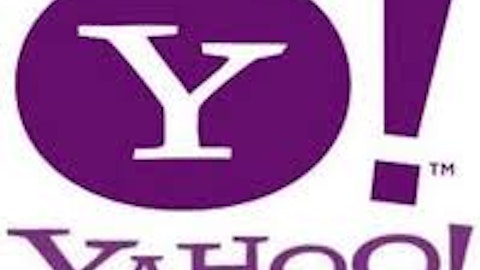While it’s sometimes an easy fact for investors to forget, a company is much more than just a collection of products and services, numbers on a balance sheet, or a stock price. It’s a living, breathing, ever-evolving team of people organized to unite and accomplish a specific and shared goal in unison. And – like any other team – a company requires a strong, intelligent, capable, and insightful leader.
The purpose of this article is to introduce and examine the founders and leaders of today’s most influential businesses and to analyze how their unique management techniques have and will influence their company’s investors.

Google was founded in 1998 by Larry Page and Sergey Brin “to organize the world’s information and make it universally accessible and useful” while adhering to the company’s unofficial slogan of “Don’t be evil.” Google Inc (NASDAQ:GOOG)’s focus on unbiased objectivism and consumer protection blessed the company in countless ways, allowing the once tiny startup to grow into one of the most powerful, valuable, and influential technology companies ever.
In 2004, Google Inc (NASDAQ:GOOG) debuted on public markets at $85/share. The company closed its first session at $100.34 and ended the year at $194. However, not everything was perfect in the kingdom. Concern was growing that Google’s “Don’t be evil” culture would be overtaken by the short-term demands of shareholders. In 2006, Google Inc (NASDAQ:GOOG) added “Chief Culture Officer” to Head of HR Stacy Sullivan’s title to ensure that the company’s unique essence would be preserved.
Today, Larry and Sergey — who are currently committed to a 20-year agreement to remain employed by Google Inc (NASDAQ:GOOG) until at least 2024 — continue to lead the company into uncharted territory. Recently overtaking industries such as GPS navigation and mobile software development with innovative and free products, Google Inc (NASDAQ:GOOG) truly inspires the thought: “What will they think of next?”
Yahoo! Inc. (NASDAQ:YHOO)
Yahoo! was founded in 1995 by Jerry Yang and David Filo. The company grew rapidly throughout the 1990’s, quickly becoming one of the most visited web properties in the history of the internet. However, as the internet grew larger and more difficult to organize, Yahoo! Inc. (NASDAQ:YHOO) would eventually succumb to the fierce competition of innovative and nimble competitors — namely Google.
After passing over a $44.6 billion unsolicited bid from Microsoft in 2008, Yang was ousted as CEO. From there, Yahoo! Inc. (NASDAQ:YHOO) faced year-after-year of shrinking revenues, underinvestment, mismanagement, and declining stock prices. It looked like there was no hope for the struggling former web giant.
Until, on July 17, 2012, Marissa Mayer – a former Google executive – took the reins as CEO of Yahoo! with a promise to reinvigorate and breathe life into the dying empire. Mayer has since rolled out numerous refreshing product updates, vastly improved the company’s long-heralded and unique culture, and given shareholders and top employees confidence by overseeing a 30%+ increase in the company’s stock price since she took over.
At this point, a bet on Yahoo! Inc. (NASDAQ:YHOO) is a bet on Marissa Mayer — and that’s a bet Wall Street appears willing to make.
Tesla Motors Inc (NASDAQ:TSLA)
Named after legendary engineer and physicist Nikola Tesla and founded in 2003 by Elon Musk & friends, Tesla Motors intends to commercialize electric vehicles from the early-adopter stage the industry is in now all the way to mass market production. With products such as the Tesla Roadster — the first fully electric sports car — and the Model S — a fully electric luxury sedan — Tesla has already revolutionized the fledgling electric vehicle industry.
Elon Musk is a South African-born American entrepreneur who is best known for founding SpaceX and co-founding Tesla Motors and Paypal. His experience in tech startups and extreme interest in electric vehicles long predate the creation of Tesla Motors. Musk showed his incredible confidence and faith in the long-term prospects of Tesla when he funded the majority of the company’s $7.5 million Series A capital investment round with personal funds.




